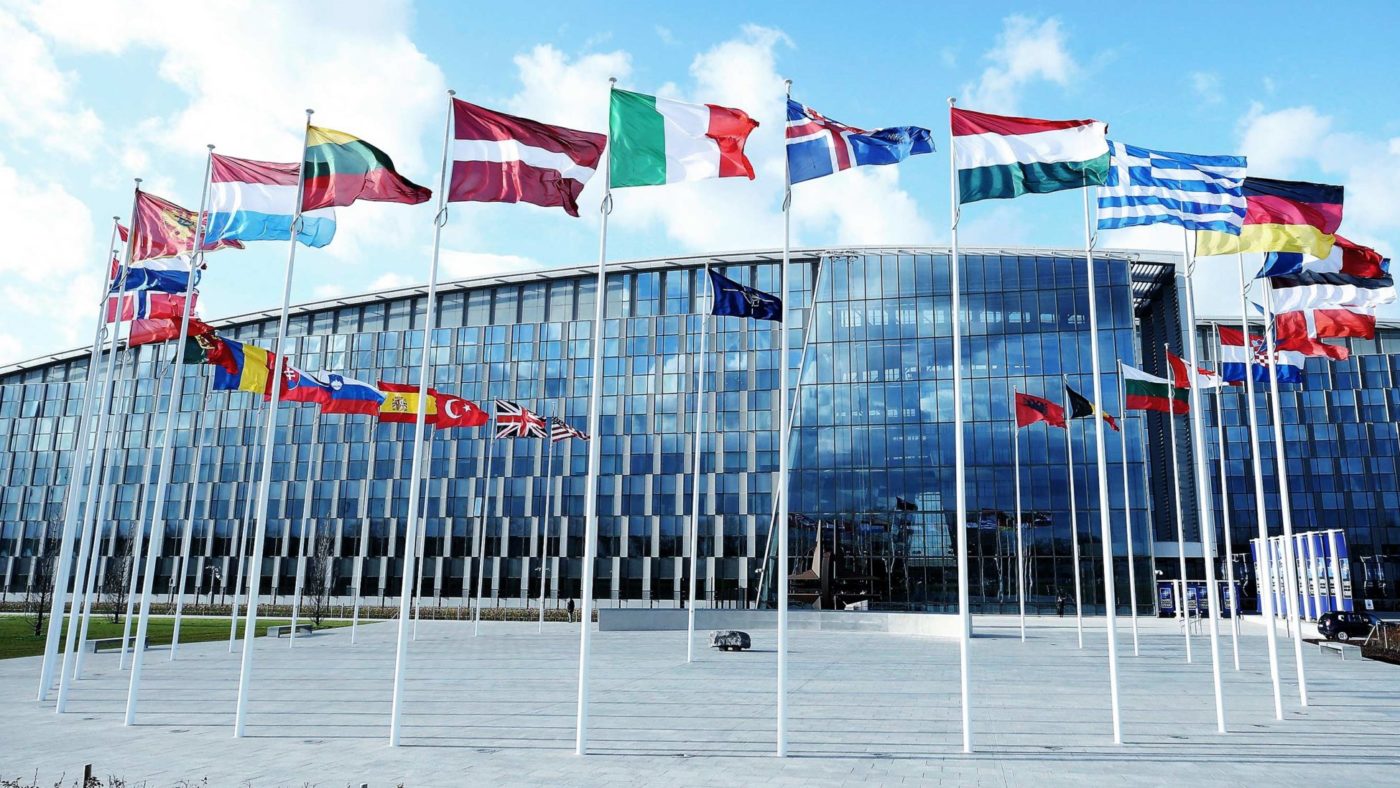The idea that the European Union’s has brought peace to the Old Continent is among federalists’ favourite arguments in favour of ever more integration. In fairness, it is true that the EU played a significant role in its early stages in securing peace in an area of the world which had seen millions upon millions die over the first half of the twentieth century.
Yet, as I argue in a newly released study, this EU-centric story has frequently left out another international organisation, which arguably did much more than the EU to maintain peace in Europe — NATO. Founded 70 years ago today, the alliance has certainly come in for its fair share of criticism in recent years, but its role should not be diminished.
NATO was set up only four years after at the end of World War II, at a time when Nazism was defeated, but Communism was certainly not. Though democratic and free, Western European nations faced a socialist mega-state with a massive Red Army. Nor were the likes of France, Britain and West Germany the prosperous places we now think of — as Gary Schmitt from the American Enterprise Institute has written, Western Europe was “economically on its knees, politically unstable, and with its various militaries demobilised”.
NATO’s first Secretary General, Lord Ismay, summed up the goal of the alliance as “keeping the Soviet Union out, the Americans in, and the Germans down”. In the decades after its formation, the new organisation emphatically succeeded in all its aims. The Soviet Union was prevented from invading countries to the west the Iron Curtain, which enabled much of Europe to flourish. A special relationship developed between the US and Europe. And rather than instigating yet another devastating conflict, Germany became a liberal, democratic economic powerhouse.
Even after the fall of the Soviet Union removed NATO’s prime objective, the alliance secured peace further by welcoming new members from the Eastern Bloc, still an area of great instability in the years following the end of the Cold War. As Dalibor Rohac has argued on CapX, in its first four decades NATO “successfully contained one of the deadliest ideologies ever conceived and then played a major role in the return of some 100 million people in Central and Eastern Europe to democracy, markets, and shared prosperity”.
For all that success, things have since gone somewhat awry. A defence alliance like NATO has as its task to protect members from external forces. It was not conceived as a means to remake the world and create a liberal order. But that is exactly what the alliance ended up engaging in, starting in the mid-90s in the Balkans and later intervening in Afghanistan and Libya, parts of the world which were far from crucial to the security of most NATO members.
Criticism over NATO’s purpose and strategy has been mounting in recent years. Donald Trump has been especially vocal, calling the alliance “obsolete,” and repeatedly complaining that the US is footing the bill for the rest of the alliance. His gripe is well-founded, given that the Americans contribute three-quarters of total NATO military spending, and only four of the other 29 states – the UK, Greece, Poland, and Estonia – are spending the target of two per cent of GDP on defence.
Trump’s criticisms may be reasonable, but it’s also true that Europe is now a very different continent to when NATO was founded. While he excels at sabre-rattling, Vladimir Putin’s Russia is not in the same league as its Soviet predecessors. With that in mind, it’s understandable that countries like Germany or France do not want to invest two per cent of their GDP in military spending for which they have little use. Emmanuel Macron and Angela Merkel might disagree with each other – but neither plans to invade the other’s country any time soon. It’s even more baffling that Greece, with all its financial problems, is still spending two per cent of GDP on its military.
If NATO wants to survive and flourish, it needs to rethink some of its policies and reinvent itself. That will mean doing less. Instead of desperately looking for new tasks, it should just stick to what it is good at: defending its members. Certainly defending Europe and North America might be different — and less dramatic than in years gone by, but new challenges have arisen. Focusing more on cyber-security, protecting critical infrastructure like energy grids, or fighting domestic terrorism are just some areas NATO members could collaborate more.
In addition, NATO should stand up for the values set out in its founding treaty — democracy, individual liberty and the rule of law. That means possible suspensions for governments flouting these principles – think of Turkey or Hungary — and bringing free trade back on the agenda in a transatlantic relationship which has taken a hit in recent years. After all, Article 2 of the North Atlantic Treaty sets out that members “will seek to eliminate conflict in their international economic policies and will encourage economic collaboration between any or all of them”.
Finally, instead of trying to admit ever more member states in eastern Europe, European countries should be encouraged to take more responsibility for their own defence. An EU army might be a terrible idea, but that does not mean that EU member states cannot do a little more, and programs such as PESCO are a welcome step in the right direction.
At 70, NATO is not done. It has been a success story for peace in the Western hemisphere, containing the Soviet Union, facilitating friendship across the Atlantic, and helping restore liberal principles in countries denied freedom for so long. But instead of trying to act as the world’s policeman, it’s time to think smaller. Defending its members from grave external dangers is where NATO has been particularly successful. It still can be.
CapX depends on the generosity of its readers. If you value what we do, please consider making a donation.


